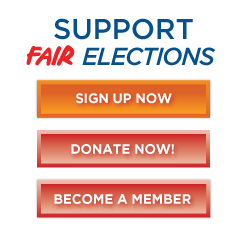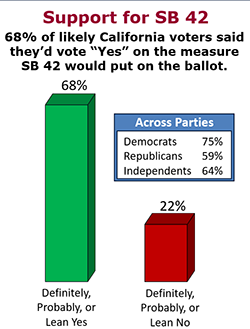More Light Please: Campaign for California Bill To Force Disclosure of Corporate Campaign Contributions
Former Supreme Court Justice John Brandeis said it best. When it comes to political skull-duggery, "Sunlight is the best disinfectant," he said. On Sunday, Jan. 8, 2011, the old guard of San Francisco politics gathered in the Latino Room of the San Francisco Main Library to bring more light into the state's political processes by kick-starting the campaign to support AB 1148, the California DISCLOSE Act. Hosted by the California Clean Money Campaign, the event included representatives from nearly every progressive political group in the city, from the Harvey Milk LGBT Club to the Older Women's League to the SF Green Party to Progressive Democrats of America. All have united to try to minimize the impacts of the Supreme Court's recent Citizens United ruling. The kick-off, hosted by the San Francisco Working Group for Clean and Fair Elections, was deftly organized by Joni Eisen, co-ordinator of the Working Group. Trent Lange, President of the California Clean Money Campaign, was the keystone of the program. He began by energizing the room with a call to arms: "Let's get a hearty BOO for the Citizens United decision." He spoke at length about the influence of shadowy groups and their anonymous donors on campaigns. He described DISCLOSE as "one chip away at what we're up against." What they're up against are untold corporate dollars flowing into elections. How does the coalition plan on washing dirty money out of politics? With an infusion of clean money - and by clean they mean transparent. DISCLOSE is an acronym for Democracy Is Strengthened by Casting Light On Spending in Elections. It is designed to counteract the Citizens United ruling and its assertion that corporations are people, and thus entitled to the same freedoms of speech and expression as actual flesh-and-blood people. The issue is that political contributions are seen as a form of protected speech. In other words, corporations can now pump as much money into elections as they like. As a result, campaigns nationwide have been buffeted by political action committees (PACs) and their sleeker counterparts - Super PACs - which (who?) are not even required to identify the donors who pour funds into their coffers. These groups can then turn around and purchase ads in such formats as radio and television commercials, and slate mailers, with the aim of influencing voters. The goal of DISCLOSE is to shine a light on the real money and influence in California politics. The act is deemed necessary due to the failure of the 2010 Federal DISCLOSE Act, which would have institutionalized clean money regulations nationwide. Here in California, the bill would make changes that, among other improvements, would revamp advertisements' disclosure requirements. At the moment, prime opposition to DISCLOSE arises from radio and television broadcasters, who complain that disclosures already take up around 50% of political ad time. However, DISCLOSE would actually streamline the process, by taking out most of the disclosure deemed as excessive and replacing it with a simple list of the three biggest contributors to the ad - as well as statements from the CEOs of those companies endorsing the message of the ad, in the same way that candidates must state their endorsement of their own campaign ads. Another speaker, Michelle Romero of the Greenlining Institute, elaborated on the dangers of unchecked political spending. She explained how current politically informative resources are useful for traditionally politically engaged folks, but not for people who find it too formal - too legalistic. Marginalized voters - the recently incarcerated, immigrants, and those who cannot afford television or internet - come to rely heavily on radio ads and direct mail, and thus disclosure of who is disseminating this information is critical. She also emphasized the importance of DISCLOSE by noting that 60% of voters polled said they'd be less likely to vote for their legislators if they voted against revealing who funds their ballot campaigns and advertisements. The irony here is that in order to get rid of the money in politics, they need to inject more money into politics. In order to educate voters on the evils of dirty money, it will take lots of clean money. Education costs money. But in addition to financial contributions, speakers such as Lange and Romero emphasized the importance of alternative methods, especially hand-written letters to legislators. A gentleman in the audience asked Lange exactly how the enforcement process would work: "What provisions in the bill will address going after scofflaws?" According to Lange, the current penalties are actually rather stringent; groups with insufficient disclosure can be fined up to three times what they spent on the ad(s) in question. The problem is the disclosure laws themselves, which are so weak as to render any punishments ineffective. It doesn't matter how sharp a bear trap is if it never snaps shut. Contributions to the California Clean Money Campaign can be sent to 3916 S. Sepulveda Blvd, Suite 109, Culver City, CA 90230 Alex Brant-Zawadzki, a long time contributor to Off the Bus, is a graduate student in public policy, journalist, politico, and all around scallywag. If you would like to contribute as a citizen journalist to The Huffington Post's coverage of American political life, please write to us at www.offthebus.org. See the article on Huffington Post website (In accordance with Title 17 U.S.C. Section 107, this material is distributed without profit to those who have expressed a prior interest in receiving the included information for research and educational purposes.) |



